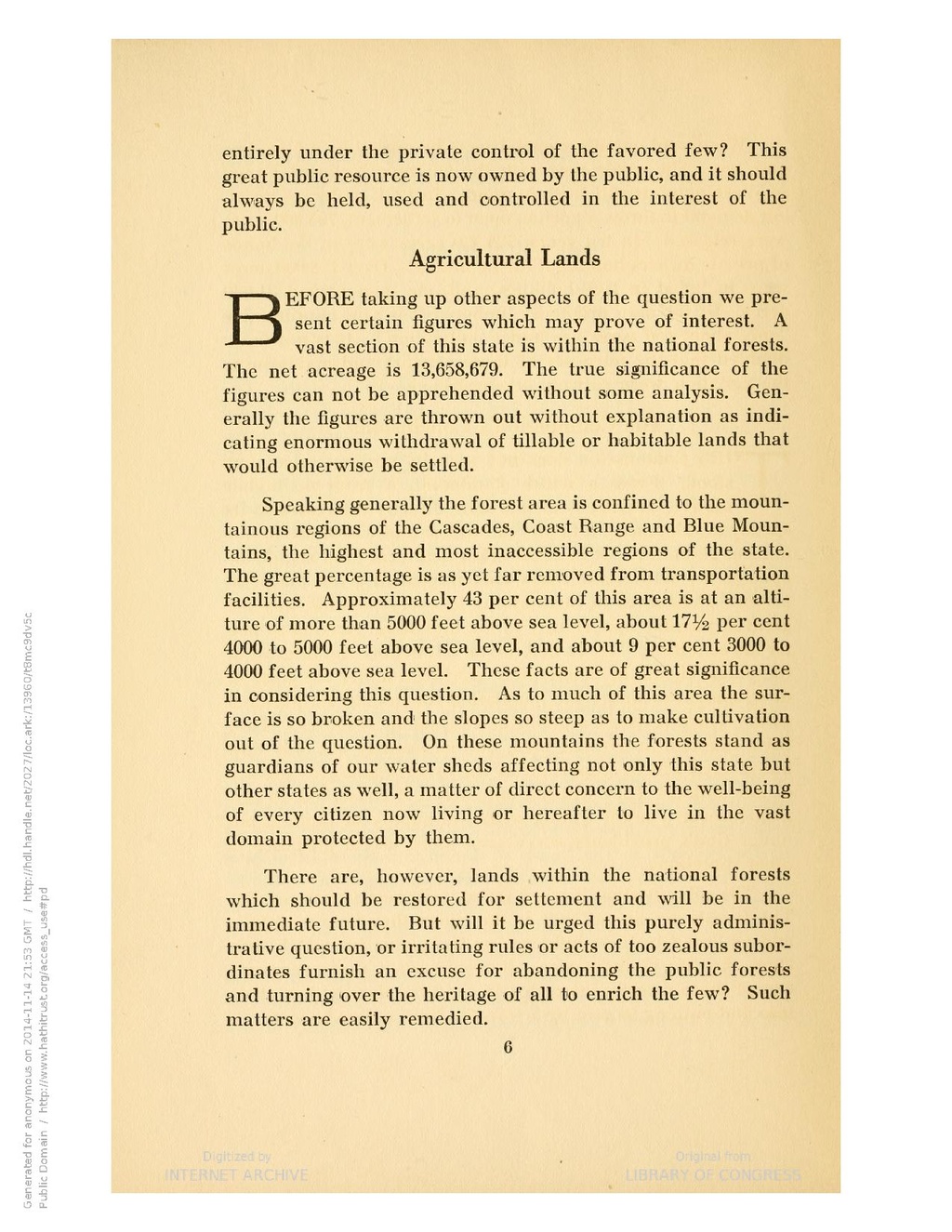entirely under the private control of the favored few? This great public resource is now owned by the public, and it should always be held, used and controlled in the interest of the public.
Agricultural Lands
BEFORE taking up other aspects of the question we present certain figures which may prove of interest. A vast section of this state is within the national forests. The net acreage is 13,658,679. The true significance of the figures can not be apprehended without some analysis. Generally the figures are thrown out without explanation as indicating enormous withdrawal of tillable or habitable lands that would otherwise be settled.
Speaking generally the forest area is confined to the mountainous regions of the Cascades, Coast Range and Blue Mountains, the highest and most inaccessible regions of the state. The great percentage is as yet far removed from transportation facilities. Approximately 43 per cent of this area is at an altiture of more than 5000 feet above sea level, about 171/2 per cent 4000 to 5000 feet above sea level, and about 9 per cent 3000 to 4000 feet above sea level. These facts are of great significance in considering this question. As to much of this area the surface is so broken and the slopes so steep as to make cultivation out of the question. On these mountains the forests stand as guardians of our water sheds affecting not only this state but other states as well, a matter of direct concern to the well-being of every citizen now living or hereafter to live in the vast domain protected by them.
There are, however, lands within the national forests which should be restored for settement and will be in the immediate future. But will it be urged this purely administrative question, or irritating rules or acts of too zealous subordinates furnish an excuse for abandoning the public forests and turning over the heritage of all to enrich the few? Such matters are easily remedied.
6
